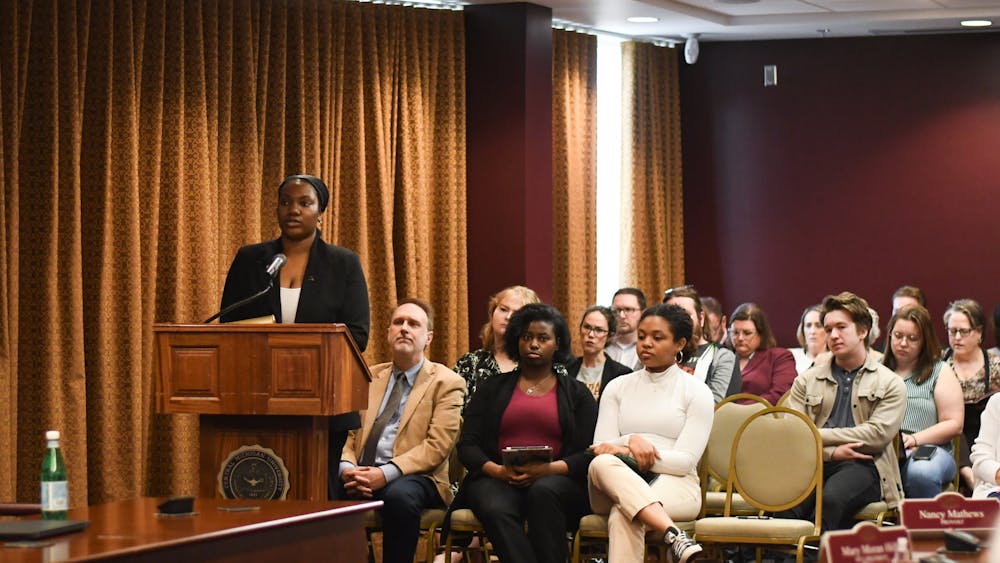Opinion surveys closer to moving online
The Academic Senate voted 26-19 Tuesday to support publishing the Student Opinion Surveys on the Central Michigan University Portal.
The issue now is in the hands of Provost Gary Shapiro, who will review the minutes from the meeting and a request by the Student Government Association for publication of the scores. Shapiro is expected to make a decision on the issue in the next few weeks.
“Our goal is to put the information online in the General Academics section (of the Portal) under a sublink,” said Jason Nichol, Student Government Association president and Mount Pleasant senior, in a presentation to the A-Senate.
The results of the SOS are available in CD form upon request at the reserve desk in the Charles V. Park Library. Nichol said the information already exists, but the format has to be changed.
He said it is not accessible to “our generation,” which has a much easier time accessing information electronically.
Some Senate members were concerned students would use the SOS data in combination with the grade distributions to pick only professors that appeared to give “easy A’s.”
“I would love to get an A, but I’m not going to shop around for one,” said Killian Richeson, an SGA representative in the Senate and a Hesperia sophomore.
Opposition
Donna Ericksen, professor of mathematics, and Orlando Perez, chairman of political science, gave a presentation at Tuesday’s meeting against the online publication of SOS data.
“These are just a snapshot of what happens in the classroom. They only tell part of the story,” Ericksen said.
Ericksen argued SOS results can be influenced by various factors including the race, gender, ethnicity, personality and accent of the teacher or the time the class is held.
“If they were reliable, I would get the same scores in my 8 and 9:30 classes because I’m the same person in both classes,” Ericksen said. “Just because they are published in one place doesn’t mean we want to endorse them.”
Perez presented information claiming the SOS data is an inaccurate measure of a teacher’s abilities and correlates more closely to how well the student feels they have done in the class.
Joseph Finck, a professor of physics, suggested that putting the SOS data online would allow the administration to post disclaimers and advice on the use of the data, whereas anyone could easily copy the information from a CD at the library and put it online without such information.




